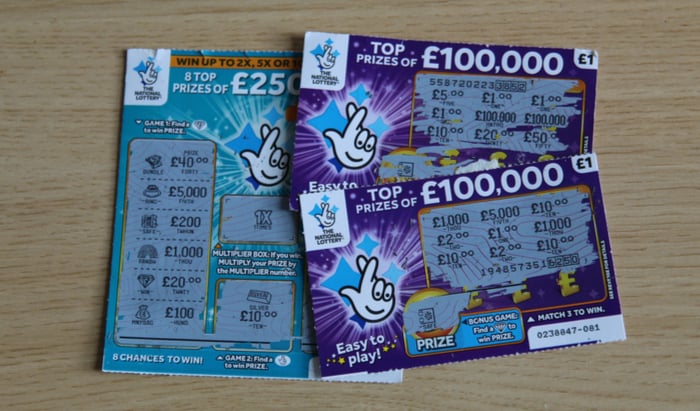MPs in the UK Government are urging National Lottery operator Camelot to give more revenue earned from scratchcards and instant win games to good causes, according to a report in the Telegraph.
Senior Conservative MPs were reported as having raised concerns on Tuesday about how much instant win games revenue Camelot gives to health, education, environment and charitable causes.
Scratchcards and online instant win games have helped the National Lottery operator almost triple its profits in the past 10 years, spurring MPs to push for more money to be awarded to good causes.
The demand comes as Camelot goes up against Italy’s Sisal, India’s Sugal & Damani and Czech Republic’s Sazka Group (under the brand name Allwyn) in the Fourth National Lottery licence competition, which is being run by the UK Gambling Commission (UKGC).
The operator’s profits have increased strongly over the past decade, from £29m in 2010 to £78m in 2020, with scratchcards and instant win games sales now accounting for 43% of its revenue, up from 25% in 2010.
MPs asserted that returns for good causes are significantly lower from scratchcards, at an average of 10p in the pound, unlike the average of 30p in the pound from draw-based games such as Lotto and EuroMillions.
The National Audit Office noted that “good causes have suffered” due to the popularity of instant win games and the decline in sales of draw-based games – which grew last year but remain below levels reported in the first half of the last decade.
In its 2018 report, Whitehall’s spending watchdog stated that the UKGC “acknowledges that it is not comfortable with Camelot’s profit growth in recent years compared to the returns to good causes”.
Camelot’s profit has increased to 1% of sales after tax, rather than the 0.6% anticipated by the commission in the original 2009 licence.
On Tuesday night, Conservative MP Karl McCartney claimed that the National Lottery operator had been “sucking money away from good causes and ordinary people, and funnelling it into the pockets of its shareholders”.
He told The Telegraph: “With Camelot’s licence coming to an end [after 2023], I hope that 2021 is the year that the Gambling Commission finally sweeps away the greed and deadwood and reinvigorates the National Lottery’s soul and purpose.”
Sir Iain Duncan Smith, Vice Chairman of the All-Party Parliamentary Group on Gambling-Related Harm, said the operator had “got a long way away from the normal single lottery”, adding: “There needs to be a proper and full review on what Camelot’s purpose is. They’ve become a gambling company like any other. We think gambling companies need to be heavily regulated.”
Camelot has declared that £42bn has been raised for good causes by the National Lottery and it has also delivered £140bn for winners and society, adding that “focusing on one part of the games portfolio doesn’t give an accurate picture”.
A spokesman said: “The National Lottery was set up by Parliament as a single-operator model as it is the most efficient way to maximise returns to good causes and society. It’s subject to separate legislation and is very different from mainstream gambling.”
Back in March, several MPs claimed that Camelot had attempted to ‘conflate its role’ as an operator with the National Lottery when it comes to good causes.
MPs said the operator has taken out advertisements in The House Magazine, available to only MPs and Westminster staff, and put its own branding ahead of the lottery.




























